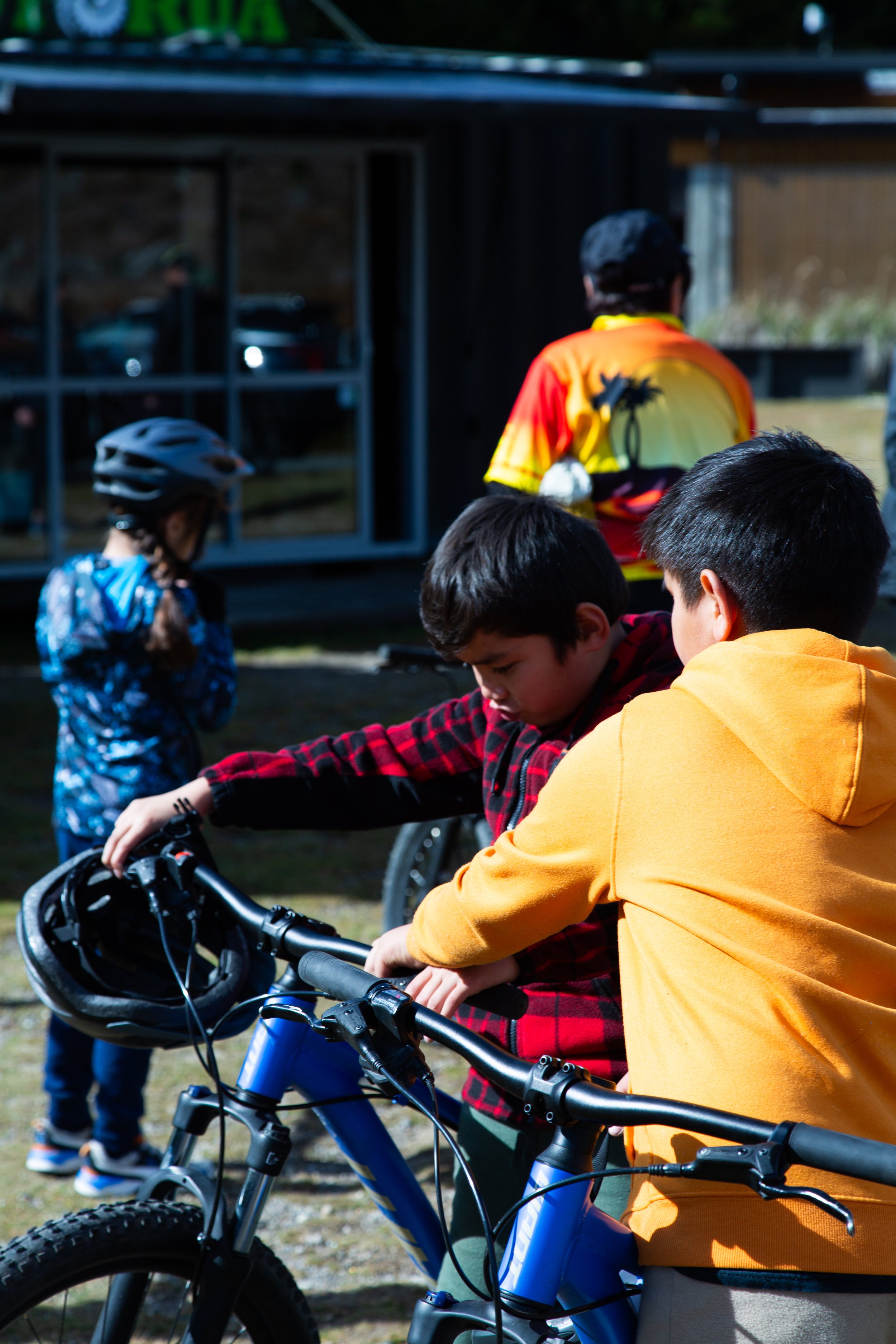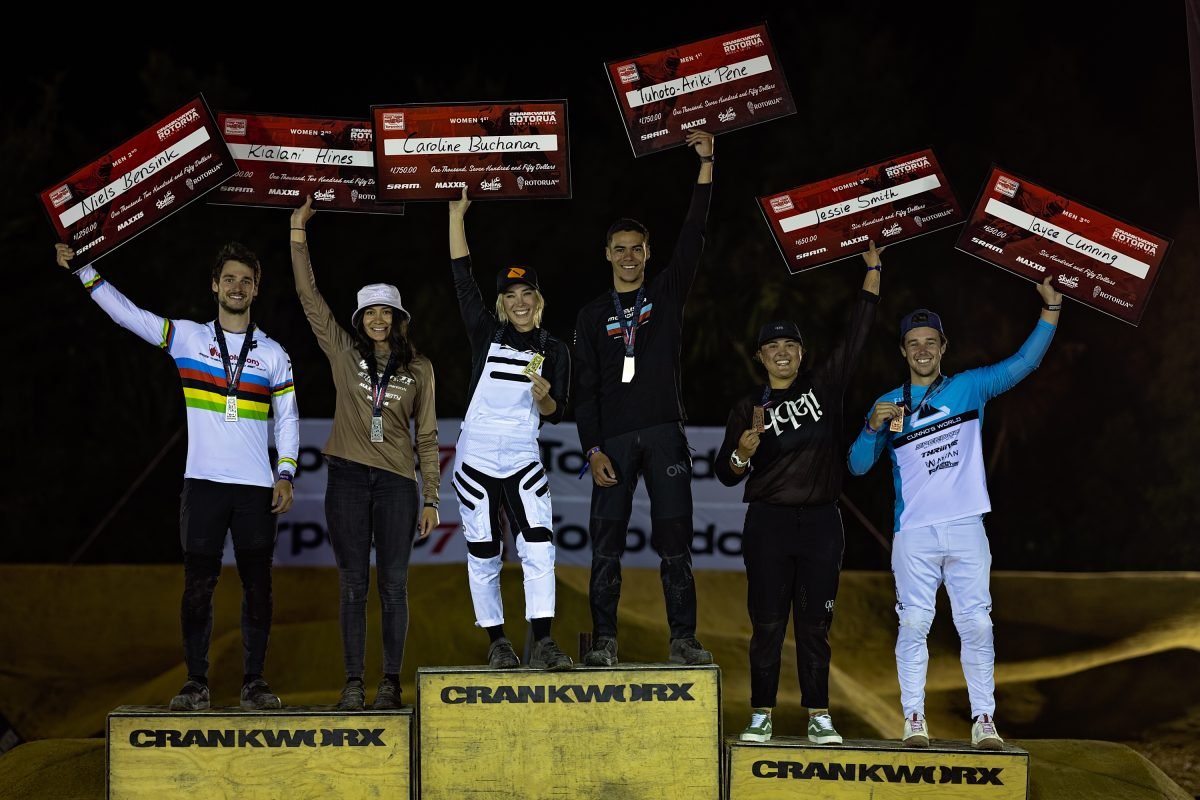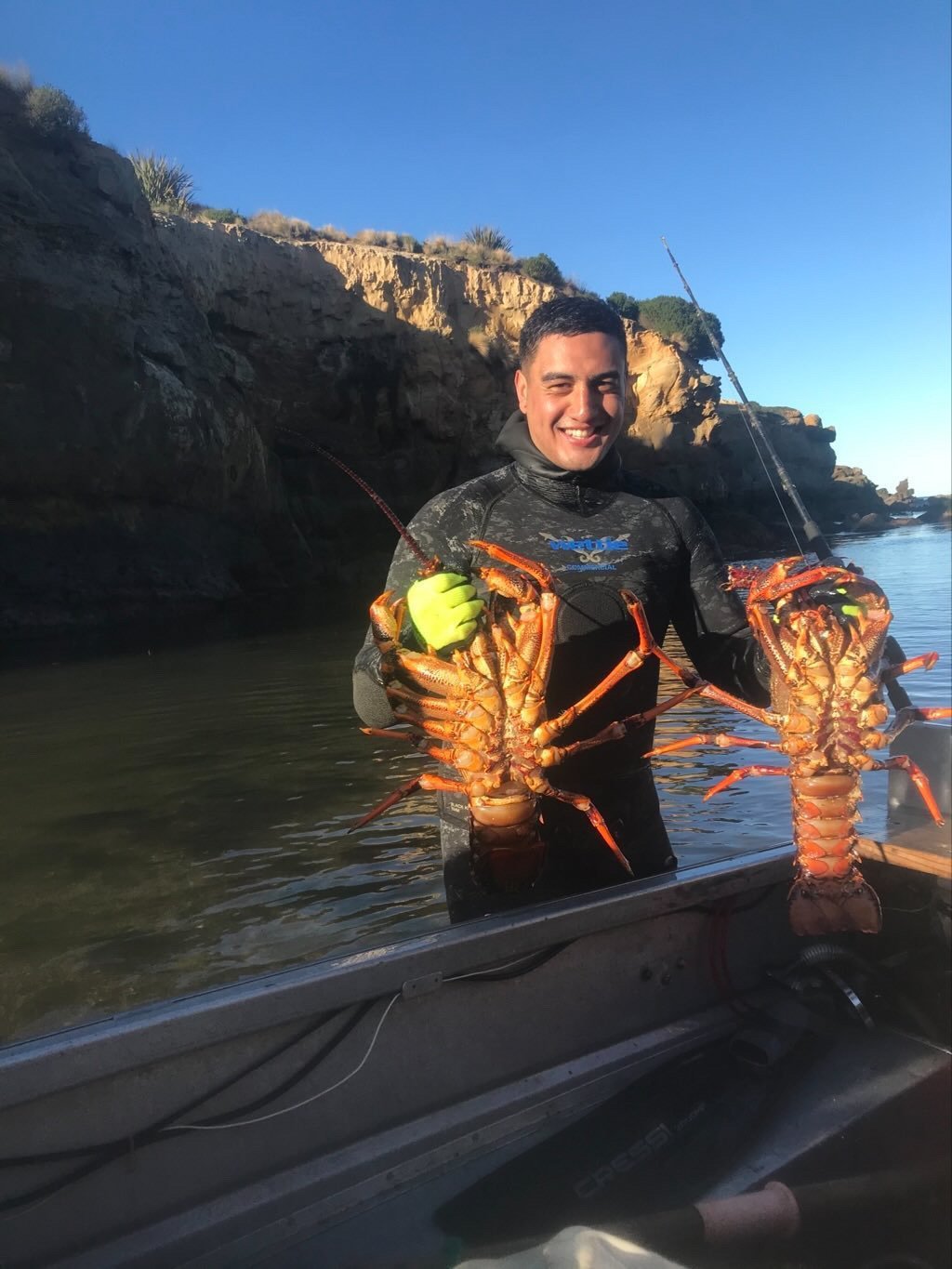Pou Whakahaere Taiao | Environmental Manager Position Available
Pou Whakahaere Taiao | Environmental Manager Position Available
Are you passionate about environmental sustainability and making a difference? Tūhourangi Tribal Authority is seeking a dedicated Pou Whakahaere Taiao for an 18-month fixed-term position based in Rotorua, New Zealand.
Position: Pou Taiao | Enviromental Manager
Type: Full-time, 18 months fixed term
Location: Rotorua, New Zealand
Salary: $90,000 - $110,000 per year, depending on experience
Application Deadline: Monday, 22nd July
Mō te Tūranga | About the Role:
As the Pou Whakahaere Taiao, you will play a pivotal role in delivering our strategic environmental outcomes and building the capacity of our hapū to make informed decisions on environmental matters.
Key responsibilities:
Providing advice on natural resources and whenua within the Tūhourangi rohe, focusing on environmental legislation and policy reforms, especially freshwater and geothermal issues.
Ensuring the delivery of our taiao workplan, including developing our freshwater and geothermal management plan (Ngā Tūpuna Wai o Tūhourangi) and working with hapū to develop their taiao position statements.
Building capacity and capability of our hapū to uphold kaitiakitanga.
Representing Tūhourangi in environmental forums and fostering collaboration and communication with hapū.
Leading process improvements of our taiao system and structure and promoting continuous improvement.
Reviewing and improving protocol relationships with central and local government.
Upholding Tūhourangi values and tikanga.
Mōu | About You:
We are looking for someone who:
Has a passion for environmental sustainability and making a difference.
Preferably has a background in environmental studies, policy and planning, freshwater, geothermal, or a related field.
Has experience engaging with multiple iwi, hapū, and marae.
Understands the challenges for iwi, hapū, and whānau in urban and rural planning and legislation.
Is knowledgeable about the local and regional government sectors and Te Tiriti principles.
Has knowledge of tikanga Māori and the perspectives of Māori.
Can work collaboratively with diverse groups and stakeholders.
Is committed to environmental stewardship and sustainability.
Understands and respects iwi and hapū values and cultural practices.
Can navigate and influence governmental processes and regulations.
Location:
Based in Rotorua, with potential travel outside of Rotorua.
Application Process:
Submit your CV and cover letter to admin@tuhourangi.iwi.nz by Monday, 22nd July.
Join us in making a meaningful impact for our taiao and iwi. Apply now!
Tūhourangi Awards 2023
E te iwi, tēnā tauti mai ki te pō whakanui o Tūhourangi! Tūhourangi Tribal Authority presents the Tūhourangi Awards, on Saturday 2nd December 2023.
The Awards are an opportunity to celebrate and acknowledge Tūhourangi tangata, kaupapa and pakihi who uplift, positively contribute, enhance and embody Tūhourangitanga in the mahi they do and in who they are.
Nominations are now open! Please read further for more information and nominate your whānau and share the word.
Categories
Taiao (Environment)
Tuakiri (Cultural)
Tangata (People)
Tahua (Economic)
Criteria
General eligibility criteria for all categories are:
Nominees must be registered with Tūhourangi Tribal Authority
Nominators must be registered with Tūhourangi Tribal Authority
All nominations must be in by 5pm Sunday 8th October
Nominations
Click here to make an online nomination
**Nominations close Sunday 8th October at 5pm**
More about the event
The Tūhourangi Awards evening will be held at the Pōhutu Conference Center, Rydges Hotel, Whakarewarewa
Formal attire
Tickets cost $54 pp
Contact admin@tuhourangi.iwi.nz for queries or payment plan options
Legend of the Peaks 2023: Tūhourangi Discount Code
Based in the Whakarewarewa ngahere, the Legend of the Peaks festival provides running and walking events for all levels of fitness with distances starting from 2kms for tamariki, to the pinnacle event the New Zealand Forest Marathon covering 42kms of off-road and trail running.
Tūhourangi uri have been given a discount code for any of our whānau looking to enter and take part in this event. Whether its to compete or to be on the whenua with whānau, enter this code at the checkout: "LEGENDWHANAU23"
Ki hea: Waipa MTB Park, Rotorua
Ā hea: 10-11 November 2023
Discount code: LEGENDWHANAU23
Kia kakama e te iwi!! Click the link to enter and to find out more information about this event.
Mana Whenua Academy
Building on the foundation and mahi of establishing a hub - including space for Tūhourangi-owned pakihi - in 2020, unveiling Pou Whenua in 2021, the marae for our Tūhourangi Whānau Day in 2022, Te Pūtake o Tawa is now the hub for our Mana Whenua Academy for 2023.
The Mana Whenua Academy is a kaupapa to strengthen Tūhourangi connections to our own whenua, with the use of mountain bikes.
The inaugural Mana Whenua Academy cohort had their first wānanga yesterday and will continue to meet regularly through September, October and November. This has been with the support of multiple Tūhourangi-owned businesses, Rotorua community collaborations and whānau expertise who have come together to bring a long-awaited vision to life.
Rangitihi Pene sharing whakapapa and historical kōrero about the area
There are over 160km of trails in the forest that shelters Tūhourangi and Ngāti Whakaue whenua, which entice and welcome thousands of manuhiri each month from Rotorua, across Aotearoa and around the world to ride and experience them. The Mana Whenua Academy looks to develop a pathway for more and more of the people enjoying the ngahere and tracks can trace their whakapapa to the whenua and feel comfortable out there.
If you’d like to learn more about the Mana Whenua or to support, please contact hana@tuhourangi.iwi.nz.
Our People: On the world stage
In the last two weeks we’ve celebrated a King of Crankworx Canada, in Tuhoto-Ariki Pene, and a BMX World Champion for 13-14 Boys, in Tarawhai Rikihana-Gray.
Tuhoto-Ariki originally started his competitive biking career in BMX with his siblings and whānau travelling across Aotearoa to various events. With national and world titles in his kete and a strong skills foundation fostered by BMX, Tuhoto-Ariki now competes in downhill mountain biking and has steadily made his mark in this sport as well. Koia kei a koe, e Tuhoto!
Tarawhai was one of 30 BMX athletes, and a wider cycling team from Aotearoa who travelled to Glasgow, Scotland to compete at the UCI Cycling World Championships. He competed against 49 other riders in his division to take out the gold. Auahi ana, e tama!
Our People: Jermayne Maika
Whakanuia tēnei uri nō te whānau Maika-Te Rangipuawhe, nō Ngāti Wahiao & Te Pakira. We got to catch up with Jermayne at the ahurei earlier in June to hear about what he’s been up to. Pānui mai…
Jermayne is currently a 2nd year House Officer, based at Dunedin Hospital in Ōtepoti and graduated as a Doctor, with a Bachelors of Medicine at the end of 2021. Jermayne has been in Ōtepoti since 2015, after he finished school the year before, and not with the original intention of studying medicine or becoming a doctor either. Instead, with aspirations to play professional sport and pursue other career pathways - Jermayne arrived in Ōtepoti without having the qualifications required to get into Medicine or the 1st year Health Science programme.
Mea rawa ake, he completed a bridging course to get university entrance, which flowed into completing the foundation course to get into the 1st year Health Sciences programme at Otago University.
“I couldn’t see myself wanting to do anything else”
The past 9 years on this pathway to becoming a doctor has meant a lot of sacrifices; from study time to being engulfed in mahi and providing a high standard of care for patients - so the mahi/non-mahi balance has been key. Jermayne has figured out a couple of different ways to keep balance though; with playing rugby, horse riding, and the occasional hunt and dive with uncles, his little brother and the bros.
Coming back home to Rotorua when he can is also part of keeping things in balance, so being able to come back for Te Ahurei o Tūhourangi was extra special. Performing with the whānau, chill-ngahau vibes, and knowing everyone out there can connect to what we were signing about - kāre he kupu.
Looking forward into the future, Jermayne wants to complete his initial training as a doctor and add some work experience to his kete which might take him overseas for a little bit. He’s also hinted that he wants to return to Rotorua with his mahi, and that you might even catch him at the noho and wānanga on the road to Matatini in upcoming campaigns…
Nei ngā mihi nui ki a koe Jermayne i tō para i tēnei huarahi i te ao Rata, rongoā me te whakarauora i te iwi. Nei tō iwi e whakanui ana, e tautoko ana i a koe!
He kōrero akiaki, some words of encouragement to whānau interested in studying at Otago:
There’s good support for Māori medical students, and a good crew of whānau/hapori Māori in Ōtepoti
The Dean of Otago Medical School is a wahine Māori, ko Dr. Jo Baxter nō Poutini Ngāi Tahu me Ngāti Apa ki te Rā Tō
Expect there to be a bit of culture shock and difference to what you’re used to in the North Island
Ōtepoti as a city is oriented around students - ko ngā rangatahi ngā rangatira ia te rā, ia te rā!
Bonus and probably most importantly…. the hunting and diving is second to none, I’ll show you the spots lol - from Jermayne himself, e te iwi!
Mana Whenua Academy
E te iwi nei rā he kaupapa ora mā tātou!!
We're excited to announce that in August 2023, we will be running the first intake of our Mana Whenua Mountain Bike Academy for Tūhourangi Taiohi.
Register your interest here.
The Mana Whenua MTB Academy 2023 intake is for:
- taiohi 5-12yrs old
- uri nō Tūhourangi
**REGISTRATIONS OF INTEREST CLOSE FRIDAY 21 JULY 2023** if you have any pātai please contact hana@tuhourangi.iwi.nz.
He taipitopito:
Tohu designed by Rauru Arts.
Academy will be facilitated by Te Whānau Pene, Hana and kaitautoko.
If you’d like to support, please get in touch.
Te Ahurei o Tūhourangi: Ngā Whakaahua
Click here to view the beautiful whakaahua of our whānau and kapa who showcased their Tūhourangitanga and represented their whānau, hapū and marae with beauty and pride at our recent ahurei.
#OurPeople: Margaret Courtney and the role of the Māori Land Court
A highlight on Tūhourangi uri, Margaret Courtney, Masters of Laws and the role of the Māori Land Court in contemporary Aotearoa
The Māori Land Court of New Zealand has and continues to play a unique role within the justice system. Often referred to as the “people’s court,” the Māori Land Court functions to promote the retention of and appropriate use of Māori land.
There is, however, little research to understand the role that the Māori Land Court plays in modern Aotearoa New Zealand, something which has motivated Master of Laws student, Margaret Courtney, to pursue research in this area.
Courtney (Tūhourangi-Ngāti Wāhiao, Ngāti Whakaue, Tapuika, Ngāti Umutahi) completed a Bachelor of Laws and Masters of Indigenous Studies at Waikato University before completing her Master of Laws with the University of Otago in August of 2022.
“After completing my bachelors, I worked in Hamilton for Housing New Zealand and then for the Māori Land Court before moving home to Rotorua where I continued at the Waiariki Māori Land Court within the same role.
“I really enjoyed the work there. Not only are you helping whānau to work through a court process of whenua reclamation, but you wade through the Court records through generations making whakapapa connections that some never knew existed.
Eager to pursue further study, Margaret began research into how her own whenua had been impacted by the Native Land Court.
“I decided to do my Masters of Indigenous Studies on the Native Land Court, specific to whenua at Tarawera and the systems of how the once bigger Rotomahana Parekārangi block had been divided up and how my whānau became a very small owner. This was both an educational and personal journey for me.”
Today, part of this block of land is located within Te Wairoa Buried Village, a long-standing tourism operation. The village was created by excavation from the 1886 Mt. Tarawera eruption near Rotorua.
Courtney’s tupuna lived and worked at Te Wairoa prior to the 1886 devastation.
“I thought that’s where my learning would stop but then I wanted to get back into the legal way of thinking and writing, and so decided to pursue a Master of Laws.
Margaret’s research centres on the various roles of the Māori Land Court within the contemporary environment, drawing on publicly available material including transcripts and submissions to help determine the roles.
“My interest initially came from wondering why the Māori Land Court was referred to as the ‘people’s court’, then this morphed into questioning its place and role in the modern New Zealand legal system.
“At the beginning of writing my thesis I thought there were only three main functions of the court - adjudication, protection, and facilitation.
“Investigating these three descriptors in a historical and contemporary context found that historically, they were never in the interest of Māori. The protector role represented legislative protection and could be manipulated to enable alienation. The function did not protect cultural connection to the whenua, but rather ensured that there were fair dealings.
“The Native Land Court’s role was seen as paternalistic.
“Since the Te Ture Whenua Māori Act 1993, the meaning of those three roles has shifted to be somewhat in the interest of Māori.
“In contemporary time, the facilitator role is there to facilitate and assist Māori to develop, utilise, and occupy their land as well as facilitating discussion between whānau so they can come to resolutions by themselves.
“The promoter role was found to promote the retention of whenua, whakapapa links and the connection that Māori intrinsically have with their whenua and natural environment.”
Courtney’s research also looks at the perspective of landowners and trusts, digging through and drawing on information through submissions detailing experiences with the Māori Land Court.
“Although the role of the court from a landowner perspective is shaped by their experience of going to the court, there were still similarities between them. Many submissions detailed the importance of the protector role in bringing balance to minority landowners as most often the majority shareholder trumps.”
For Māori, going through mediation and the court process is often a long enduring task that most often systematically pits families, who are linked together by whakapapa, against one another.
“The individualisation of land is a real colonial concept to do with ownership. The Court system was imposed on us and now we are dealing with the ramification of it. Whānau now endure, in some cases, rigorous proceedings.
“Every generation, the shares get smaller and smaller. For some it won’t be worth much in terms of a monetary value but there is still the cultural connection to the whenua that our people seek as a method of reconnection to their identity and where they come from.
In the publication He Pou Herenga Justice Williams said the biggest challenge for the Court is the continued individualisation of titles. He states:613
“… the inevitable consequence of hyper-individualisation, which is the creation of tiny interests with little relevance in the lives of Māori landowners. It makes it hard for communities to maintain a meaningful connection. The nature of ownership system itself made moving forward in a Māori way always very difficult, because it was designed to achieve the opposite effect, of course.”
“The system was imposed on us, and we’ve had to live with it, which is why there needs to be a discussion about the role of the court and whether it continues to be that.
“It’s important that research is and continues to be conducted to uncover how it can continuously evolve into one with the aspirations of whānau at the heart of its design.
“There has been a raft of studies done over many years on Māori land tenure, but the Court still exists in the same format that it always has. There needs to be some type of disruption and innovation to see how best it can move forward if that is the wish of the people.
“The bigger question, therefore, is, can there be change and what a remodel would look like?”
Courtney refers to the work of Otago lecturer Mihiata Pirini (Tūwharetoa, Whakatōhea), who completed her thesis on the Māori Land Court in 2020 after the failed 2017 reforms. She considered a design process incorporating landowners’ participation and views of the court.
The judiciary have also held a long-standing view that empirical research should be undertaken to uncover if the Act is a barrier to Māori land development.
“So, between that design process and understanding the roles of the court, we then need political goodwill and necessary government resourcing to try make innovative change.”
Courtney wishes to acknowledge the support of her supervisors throughout her years at Otago University including Dr Paerau Warbrick, Professor Jacinta Ruru and Dr Bridgette Toy-Cronin.
From the archives
Gilbert Mair (seated) with Te Arawa leaders and chiefs of their time L-R Te Rangikatukua, Mita Taupopoki, Iharaira Hikairo, Makareti Papakura, Hekemaru Kaiawha, Tutanekai Haerehuka.
Te Ariki Pa before the Tarawera Eruption






















